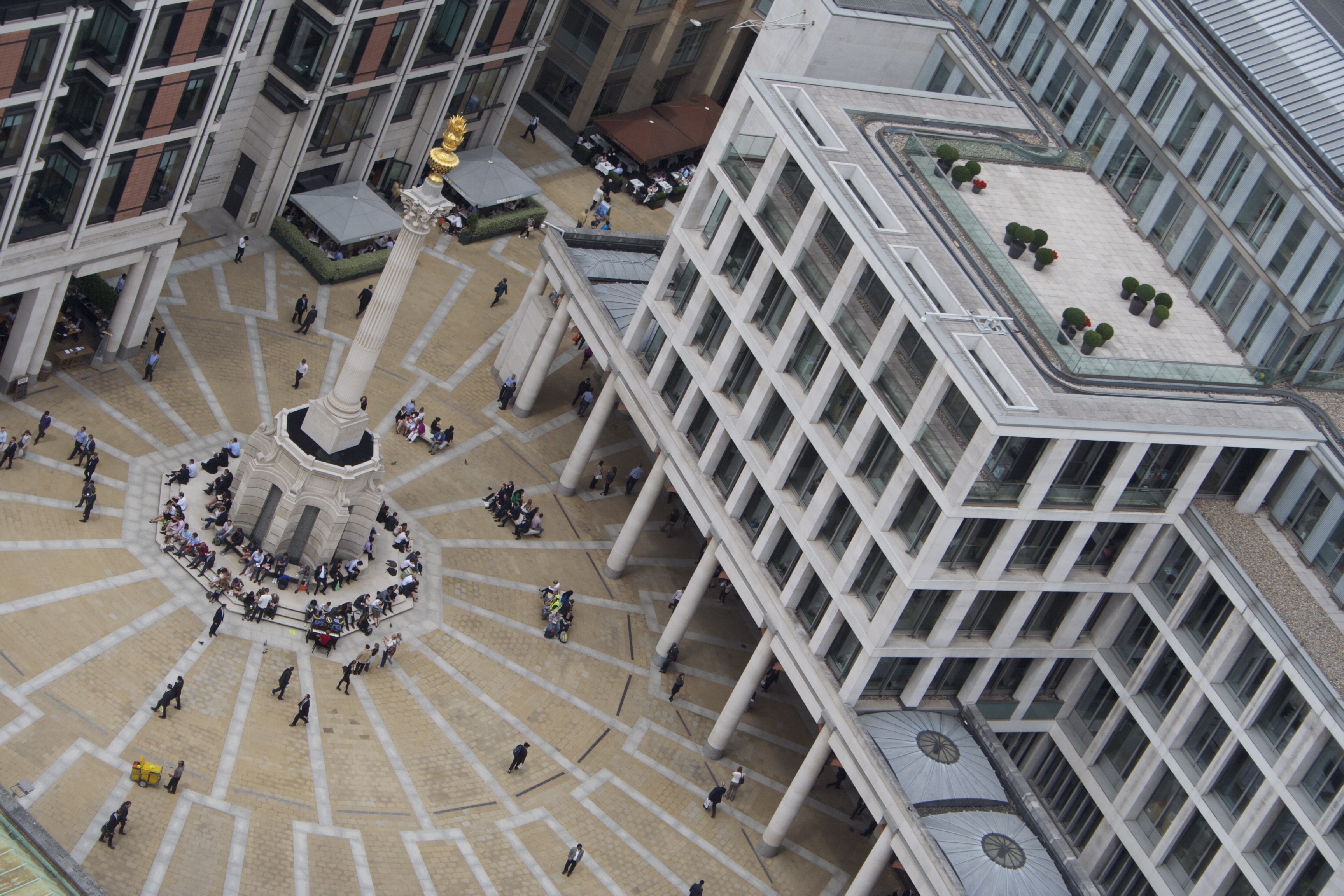The Consequences of Top-Down Economics Are Not Accidental – But There’s Cause for Hope
by A.R. Naraghi
6 October 2016

If you visit some of the poorest towns in the US, you can’t help noticing a sense of crushing powerlessness. It’s not just that they are deprived economically. As you survey the vacant buildings and peeling signs, it can seem that these communities have been discarded, broken and demoralized.
The logical question should be: what happened here? Sometimes the answer is obvious. In Sherman Park, a neighbourhood within Milwaukee, the answer is Allis-Chalmers, a heavy machinery manufacturer which collapsed in the mid-1980s. In many places it is not so simple. Sluggish wage growth, toxic chemicals in the water, the lack of affordable housing and the prevalence of systemic racism may give you clues, but nobody specific to blame.
Across the pond, the working class has faced similar problems for years. In the UK, living standards have fallen for all but the super-rich. Meanwhile, the middle class is experiencing a kind of vulnerability without precedent since the 19th century. According to a new TUC report, 3.2m British households are carrying extreme debt, meaning they spend more than 25% of their income repaying unsecured borrowings.
Add to this the Oxfam’s finding that the 62 richest billionaires have more wealth than half the world’s population, and you have plenty of evidence that any notions of meritocracy are just a big fat lie.
These economic elites want to see the rest of us stuck in the wastelands beneath them. Yes, there have always been gaps between the wealthiest and everyone else. But in the last 30 years, the income of people at the lower end has stagnated, as every worker on a pay freeze knows. Even during the boom years, when many companies were reporting record high profits, wages were declining for the middle and working classes. Those companies weren’t sharing the pie with the workforce who helped create it in the first place.
In the US, the corporate tax rate is at an all-time low, and effective tax rates for wealthy individuals are declining almost everywhere – especially for the ultra-rich. During the first US presidential debate on 26 September, Donald Trump informed us he had made an obscene personal income last year and crowed that he had paid no federal income taxes at all. “That makes me smart,” he said.
Government subsidies to corporations are growing, and public services are shrinking. As the teachers in Chicago could tell you, cities slash budgets to make up the shortfall in their finances, decimating public services. Devastated communities are left behind, ravaged by falling wages, poverty, and all the social problems that go with them – for which they will later be blamed. Some 8.7m jobs were lost between the start of the recession in December 2007 and early 2010, but not a single financial firm has been forced to suffer a cut in the value of their assets.
Yet it goes deeper than grotesque inequality.
In fact, the tax havens described in the Panama Papers point to a mere speck of an organized and legalized form of globalized corruption, which has become a hallmark of capitalism.
Nicholas Shaxson, a tax haven researcher and author of the book Treasure Islands, says the role of these tax havens is to “capture passing foreign business and channel it to London just as a spider’s web catches insects” whilst also acting as a “money laundering filter that lets the City get involved in dirty business while providing it with enough distance to maintain plausible deniability.”
Tax Justice Network, an international research and advocacy organization, estimates that as of 2010, there was between $21-32tn kept in offshore holdings. Ponder those numbers for a moment, because they make up 13% of total global wealth.
None of this happens in a fit of absent-mindedness, but rather, through decades of an offensive against the working class, industries, and institutions. The 80s were the years of trickle-down economics. Ronald Reagan and Margaret Thatcher kickstarted the destruction of unions, before adding financial deregulation and the so-called ‘big bang’, thereby laying the foundation for the 2008 crisis.
And the re-utilized fraud that created the crisis continues. Take, for example, the recent Wells Fargo scandal, in which fake bank accounts were created to pad sales targets and defraud thousands of customers.
This is how top-down economics works. Concentrated economic power leads to concentrated political influence. The elevation of individualism inevitably corrodes social responsibility. Corporate giants know where the power lies. It’s not with us.
But across many countries, people from vastly different backgrounds are coming together to be disruptive. What unites them is the rejection of a political consensus that has brought disaster, financial collapse and ideologically-driven cuts.
It wasn’t long ago that calling for $15 minimum wage in the US would have gotten you branded as a Bolshevik. But thanks to a broad coalition of groups struggling under the Fight for $15, the demand is now fixed in the national consciousness of the working class. In North Dakota, the Standing Rock Sioux tribe and the protesters supporting them have already made history, no matter the outcome. Meanwhile in the UK Momentum, the pro-Labour grassroots movement, is creating a mass crusade to increase participatory democracy.
Rigorous debates are taking place in pubs every day. Local groups are holding meetings to talk politics, plan campaigns and hear guest lectures. From Brexit to Trump, there is one glaring commonality that is hard to ignore: the deep lack of trust in the system’s mechanics.
Perhaps, like me, you’re looking at the US election cycle in despair. You are outraged by the abject failure of both parties to deliver on the most pressing challenges of our time. In which case, you turn your gaze to those transnational movements that engage abandoned communities. Real political change is happening there. They need our support.